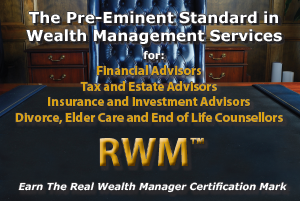High-Net-Worth Clients: Opportunities in Wealth Management Services

These are interesting times for wealth advisors, amidst new fall volatility*. While High-Net-Worth (HNW) clients around the world enjoyed investment returns of over 20 percent for the second year in a row, increases in satisfaction levels did not correlate with increased returns. This is especially true in Canada.
The revelations are found in a 2017 Capgemini Report, the most recent available on these trends. A year since its publication, this is of particular concern, when interest rates have risen with volatility. Only 55.5 percent of clients polled felt “very well” in their connection to their wealth managers, according to this report.
Client satisfaction levels in particular lagged in Canada, which registered an inverse rather than a positive trend in the report. On average, for every 1.0 percent of investment performance delivered in the period 2016 to 2018, satisfaction levels remained flat, which indicates returns alone will not sustain a wealth management business.
levels remained flat, which indicates returns alone will not sustain a wealth management business.
The numbers unearthed by the research tell more of the story:
-
Less than half—only 47.8 percent—of HNW clients globally were entirely comfortable with the fees charged for wealth management services.
-
HNW clients want personalized advice on wealth products and solutions for interesting reasons: they are exposed to “ever-expanding, diverse experiences outside the financial services,” which raise their expectations.
-
HNW clients demand holistic value. In a 2016 World Wealth Report, also by Capgemini, almost half (47.4 percent) considered investment advice, as opposed to investment performance alone, to be the most crucial element in a wealth management relationship. These clients also valued credit solutions and business expertise.
It’s clear that the wealth manager of the future needs to surpass new benchmark satisfaction levels, the authors of the report noted, and to go beyond providing great returns on investments. The obvious question to be considered: what’s the best way to deepen and strengthen those important relationships? Some suggestions from the Capgemini research:
-
Reduce your reliance on investment returns for client retention purposes.
-
Strive instead for enhanced personal connections—find ways to increase your personal bond with your client.
-
Recruit younger clients. According to the report, while younger HNW clients tend to be harder to please, they connected better with their wealth managers (63.5 percent), compared to older clients (49.5 percent).
Further, when it comes to the Ultra-High-Net-Worth space (clients with assets over $20 million US), a fourth big opportunity arises: you must be prepared to provide answers to the complex technical issues they are dealing with, from cross-border scenarios to tax and legal advice. These clients also want more on structured products, private equity, international real estate and wealth structuring, says the report.
Finally, it’s interesting to know that how HNW clients are introduced to their wealth managers makes a difference in their overall satisfaction levels. A slightly higher number establish strong connections when their wealth manager is referred to them by a business contact, than those who are semi-passively introduced (by referral of a friend). Close to 60 per cent of HNW clients who were passively introduced to their wealth manager through a wealth management firm reported strong personal connection levels.
Self-directed searches for a wealth manager did not guarantee satisfaction levels either. Clients often did not have the capacity to perform meaningful research to compare wealth managers effectively and were open to exploring ways to find a better match for their needs.
Bottom Line: there are great opportunities for wealth managers with deep technical knowledge, broad referral networks and consistent practices that feature more frequent and empathetic interactions, to win over higher satisfaction levels from clients with significant wealth.
*CBC report
Additional educational resources:
There is a need to better define who an effective wealth manager is and what he or she can do to help. It’s a standard we educate toward in the Knowledge Bureau Real Wealth Manager (RWM™) and Master Financial Advisor (MFA™) designation programs, which will now include the new MFA-Strategic Philanthropic Services Specialist™ designation program in December. Check out the client-facing brochure our graduates offer their clients, to make their important work clearer.
Evelyn Jacks is Founder and President of Knowledge Bureau and author of 53 books on tax-efficient family wealth management. Follow her on twitter @evelynjacks.
COPYRIGHT OWNED BY KNOWLEDGE BUREAU INC., 2018.
UNAUTHORIZED REPRODUCTION, IN WHOLE OR IN PART, IS PROHIBITED.
 |
 |
 |
 |
|
Refer a Friend |
Research |
Calculators |
Course Trials |
 |
 |
 |
 |